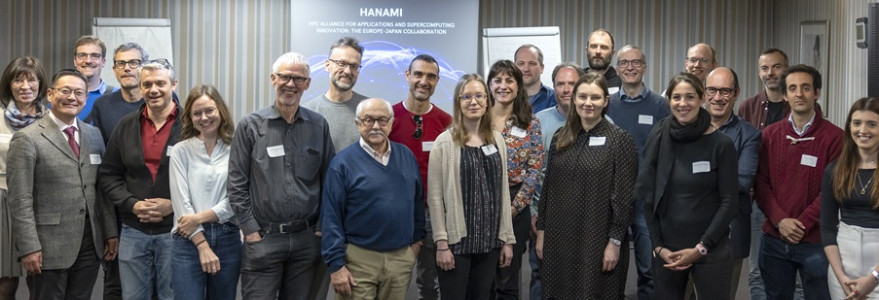The University of Warsaw is a partner in the international HANAMI project funded by the “Horizon Europe” programme. The project is an example of the European-Japanese cooperation in supercomputing. Prof. Hanna Pawłowska and Dr Piotr Dziekan from the UW’s Faculty of Physics attended the project’s kick-off meeting.
The HANAMI project aims to enhance the development and performance of European and Japanese large-scale computing applications by leveraging the shared skills and knowledge of the scientific communities in both regions – Europe and Japan. HANAMI focuses on biomedical as well as climate and weather modelling applications. It also supports the development of materials science in relevant research areas. The main objective of the project will be to port existing codes, test and evaluate the performance of applications on new computing architectures. It will also facilitate European researchers’ access to advanced supercomputing resources, such as Fugaku in Japan, and in turn allow Japanese partners to access EuroHPC systems.
On 23rd April, a kick-off meeting was held in Paris, where the Polish side was represented by Prof. Hanna Pawłowska and Dr Piotr Dziekan from the Atmospheric Physics Department of the Institute of Geophysic, the UW’s Faculty of Physics. Fourteen European research institutions are involved in the project, including the University of Warsaw, the Barcelona Supercomputing Center (BSC, Spain), the Commissariat à l’énergie atomique et aux énergies alternatives (CEA, France), and the National Research Council of Italy (CNR, Italy). The Japanese side is represented by ten partners, including the Japan Agency for Marine-Earth Science and Technology (JAMSTEC), Kyushu University, RIKEN, Tokyo Institute of Technology (TITECH), the University of Tokyo, the University of Tsukuba, and Yokohama University.
More information is available on the website of the Institute of Geophysics, the UW’s Faculty of Physics.



